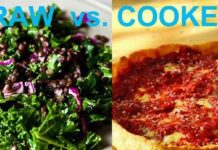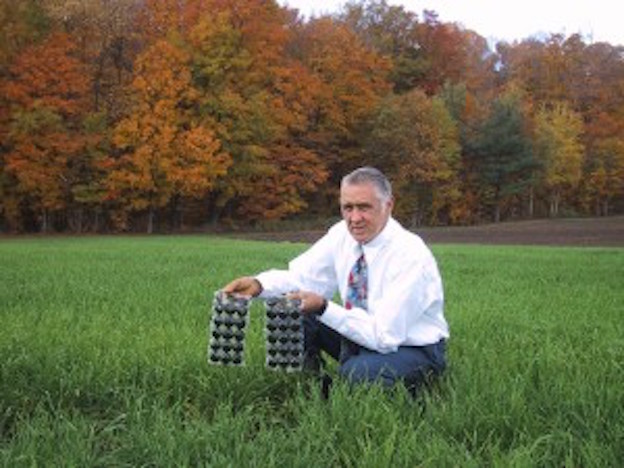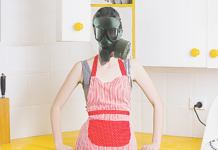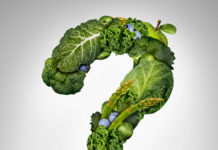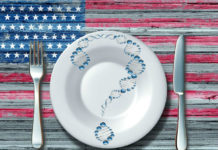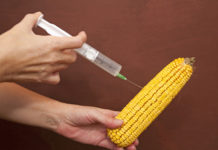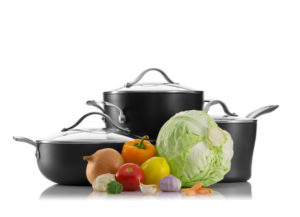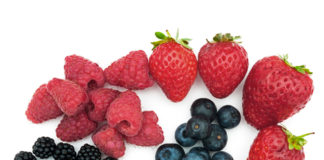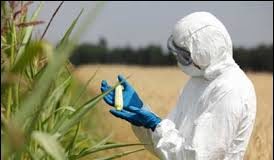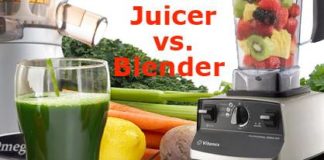Stay away from Teflon & PTFE or PFOA
- CERAMIC pans have no trace metals or chemicals that can leach into your food. For use on stove, in the oven or broiler – or the barbecue. Easy to clean, non-scratch, non-toxic.
- CAST IRON: Cast iron is known for even heating, heat retention, durability and value. Remember to season cast iron pans to keep them rest-free with a permanent, natural nonstick surface. Cast iron is heavy and may not be the best choice if lifting is a problem for you. It’s also necessary to hand wash cast iron.
- STAINLESS STEEL: Especially avoid alloys containing nickel (chromium and molybdenum may also be in some alloys). This is particularly important for people with nickel allergies. Get high grade 18/10 stainless steel, which may be sandwiched around an aluminum core. Benefits include helping to cook foods faster, retains heat longer, few hot spots, heats faster, uses less energy, doesn’t react with acidic foods, durable and long lasting, dishwasher safe, food doesn’t stick with use of oil (I prefer olive oil).
- Copper cookware is also not recommended because copper cookware must be lined due to the dangers of copper poisoning.
Don’t Give Old Pots & Pans to Goodwill.
Eliminate the Microwave
I have I not used a microwave for almost 40 years! The microwave became popular in the 1960’s without any real research on the effects of eating microwaved food. What little research done more recently on the effects of eating microwaved food has shown that microwaves make fats and proteins much more difficult to assimilate. Studies in Switzerland also show that the microwave cause changes in vitamin content and availability. Eating microwaved food results in abnormal blood profiles like those that occur in early stage cancer. And please, never use a microwaves for heating baby bottles – the altered amino acids in microwaved milk can be toxic to the liver and nervous system particularly for infants.
Finally, damage to your food isn’t your only problem with microwaves. Many microwavable foods are usually processed and packaged using a variety of toxic chemicals, including benzene, toluene, polyethylene terpthalate (PET), xylene, and dioxins (known carcinogens). These chemicals can absorb into your food. One of the most dangerous of these contaminants is BPA, an estrogen-like plastic that leaks from most plastic packaging into the food, disrupting normal hormone activity.
Valuable Kitchen Tools
- Vitamix & Blendtec: I have had a powerful high-speed blender (Vitamix (or Blendtec) for almost 40 years. I use it daily for smoothies, sauces, chopping – you name it! If I could only have one of the appliances on this list, I’d keep my Vitamix or Blendtec.
- Ninja Blender: I also have a small but powerful Ninja for small but fast smoothies as well as sauces, soups, purees, and more.
- Food Processor: I also use this often for chopping veggies for soups or salads.
- Dehydrator: I’ve gone through many cheap dehydrators over the years, but now I stick to the better, square-design models like the Excalibur and Tribest. Dehydrators are great for drying fruits, veggies and more.
- Water Filter or Alkaline Water Ionizer: I use my Life Water Ionizer every day to filter all the water I use for cooking, drinking, etc. This is the best water filter/ionizer option I’ve found. The model I use personally, and recommend highly, if from Life Ionizers.
Cookware
I prefer raw food but when I do cook is use cookware that is natural/eco-friendly and also easy to clean.
- Ceramic skillets cook evenly and are easy to clean. However, they are breakable so I be careful when cleaning them.
- Cast Iron: A cast iron pan can last forever.
- Steel Pans
Kitchen Tools
- French press for making coffee or tea without contact with plastic and much better flavor.
- Fermentation crock pot if you want to make fermented favorites like sauerkraut — filled with live enzymes and flora.
- Quality Knives are always one of the most valuable items in any kitchen.
- Tea Kettle (glass, cast iron or steel): I drink a lot of herbal tea in my house.
- A Julienne Peeler for carrots, sweet potatoes, zucchini, etc.
- A Mandoline to grate, slice or cut your veggies.
- Bamboo cutting board, an alternative to plastic or glass.
Other Handy Items
- Cloth Napkins, an alternative to paper.
- Large steel bowls for mixing and serving.
- Stainless steel straws, eco-friendly option for drinking my smoothies every day.
- Metal Water Bottles.
- Glass water bottles.
- Quart size & Pint Size Mason Jars for drinking glasses, food storage, etc.
- Sprouting lids for mason jars.
- Gallon size jars for fermentation and storage.
Also See:



